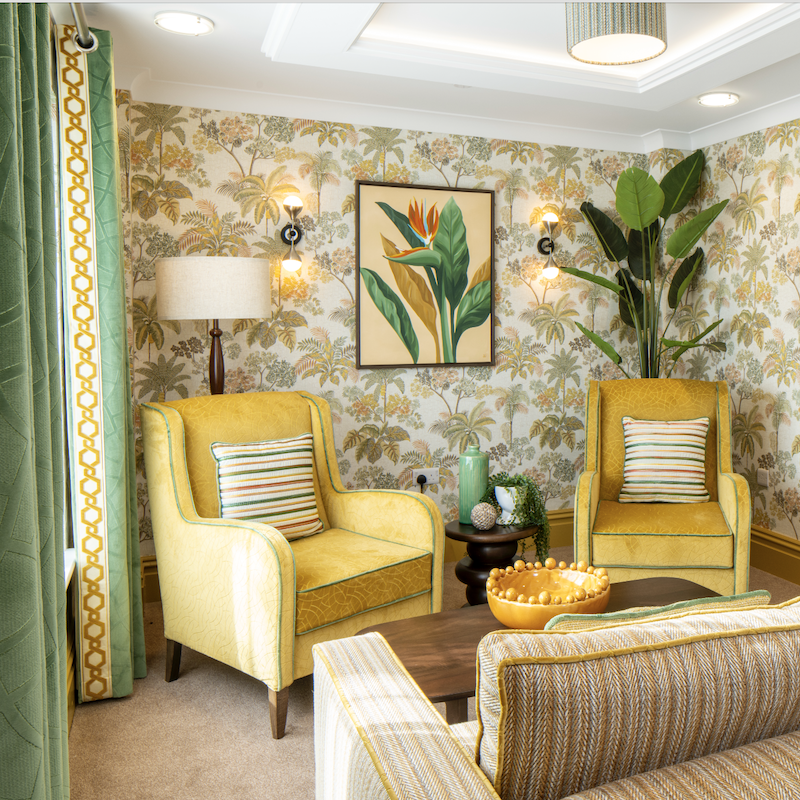
Creating Care Environments that Truly Support Wellbeing
While we couldn’t share the stage with our presentation partners Danfloor Carpets at this year’s Birmingham Care Show, we’re still passionate about bringing the conversation to you because understanding the silent needs within care design is too important to wait another year.
Our planned presentation about recognising the silent needs that support wellbeing in care homes explores the subtle but powerful ways that flooring and furnishing choices impact daily life for those living and working in care.
Sensory comfort is often overlooked in care design, yet it underpins how people feel, interact, and thrive in their surroundings. Overstimulation, noise, glare, and fatigue can heighten stress or confusion, particularly for older adults and those living with cognitive impairments.
Noise levels in care environments affect everyone. Echoes and hard surfaces can amplify sound, leading to stress, agitation and fatigue. Soft surfaces such as carpet, upholstery, cushions and curtains help absorb sound, reduce echo, and create a quieter, more comfortable space.
Caring is a role that keeps people on their feet. Hard floors increase leg strain and musculoskeletal fatigue, while cushioned carpets support joint health and reduce plantar pressure. Softer, non-slip surfaces also mean fewer falls and improved comfort for care teams working long shifts.
From colour and texture to acoustics and lighting, every sensory element can either soothe or overstimulate. Designing for sensitivities means creating harmony. Environments that are calm, familiar and emotionally supportive, rather than clinical or chaotic.
When care environments are calm, familiar and sensory-balanced, residents feel more secure, emotionally grounded and staff teams experience less stress and fatigue. That’s the essence of good design; not just looking good but feeling good.
If you’d like to understand more about how these principles can enhance wellbeing within your care home interiors, get in touch we’d love to talk to you about the importance of sensory comfort.
